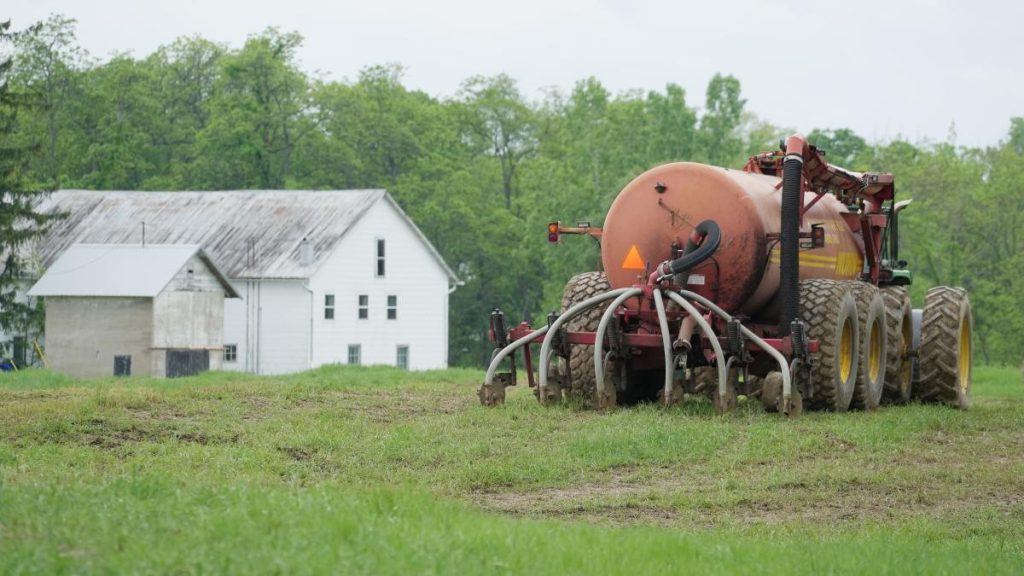The historic Hickory Bluff Farms in Ohio received nearly 100 tanker truckloads of treated sanitary sewer waste for use as fertilizer, causing concern among neighbors about traffic, odor, and the proximity of biosolids to their homes, streams, and drinking water. Biosolids are the byproducts of human waste that have been treated and used as fertilizer. The farm is surrounded by residential neighborhoods, a country club, and a metro park, leading to questions and worries from about 75 residents at a recent meeting.
The farm, owned by Steve Hadden, has been in his family since the 1890s. Hadden, who has been farming the land for a few years, had to resort to using biosolids due to financial pressures and the need to maintain the property’s agricultural tax status. The biosolids were obtained from the City of Columbus wastewater plants at no cost to Hadden, who believes using this type of fertilizer is environmentally beneficial and sustainable. However, concerns from residents about the potential health risks and environmental impact of biosolids application have heightened tensions in the community.
At a meeting hosted by Perry Township trustees, residents expressed concerns about truck traffic, biosolid applications near homes, and the use of human waste byproducts to grow crops. Environmental consultant Julie Weatherington-Rice warned that rain could wash out biosolids in the area’s clay and silt soils, potentially contaminating water sources. Residents worried about runoff leeching into wells and aquifers, as well as the proximity of the biosolids to homes and farmland. Some residents questioned the safety and testing protocols for biosolids and expressed skepticism about the long-term impact on the environment and agriculture.
Steve Hadden defended his use of biosolids as a cost-effective and environmentally friendly alternative to synthetic fertilizers. He acknowledged the concerns of residents and promised to consult with experts before any future applications of biosolids. Officials from the City of Columbus’ Department of Public Utilities emphasized the efficiency and sustainability of their wastewater treatment process, which transforms human waste into usable organic material for agricultural purposes. Despite concerns from residents, city officials maintain that biosolids are a natural part of the food cycle and essential for maintaining soil fertility and reducing reliance on synthetic fertilizers.
The issue of biosolids application in residential areas highlights the need for transparency, public education, and strict regulation to ensure the safety and well-being of communities. Residents, environmental consultants, and local officials must work together to address concerns about biosolid application, water contamination, and environmental impact. The ongoing debate over the use of biosolids as fertilizer underscores the complex challenges of balancing agricultural needs, environmental sustainability, and public health in modern society. Collaborative efforts and informed decision-making are essential to find solutions that meet the needs of farmers, residents, and the environment.


